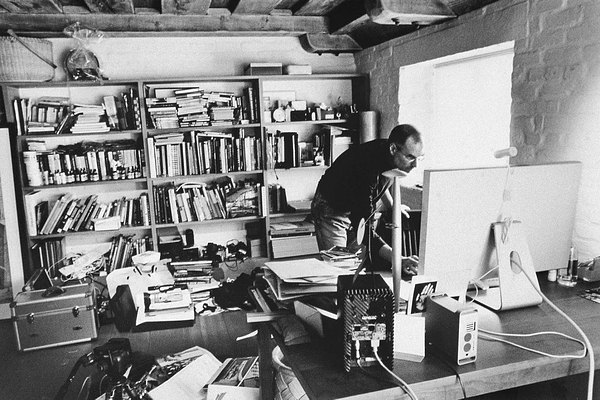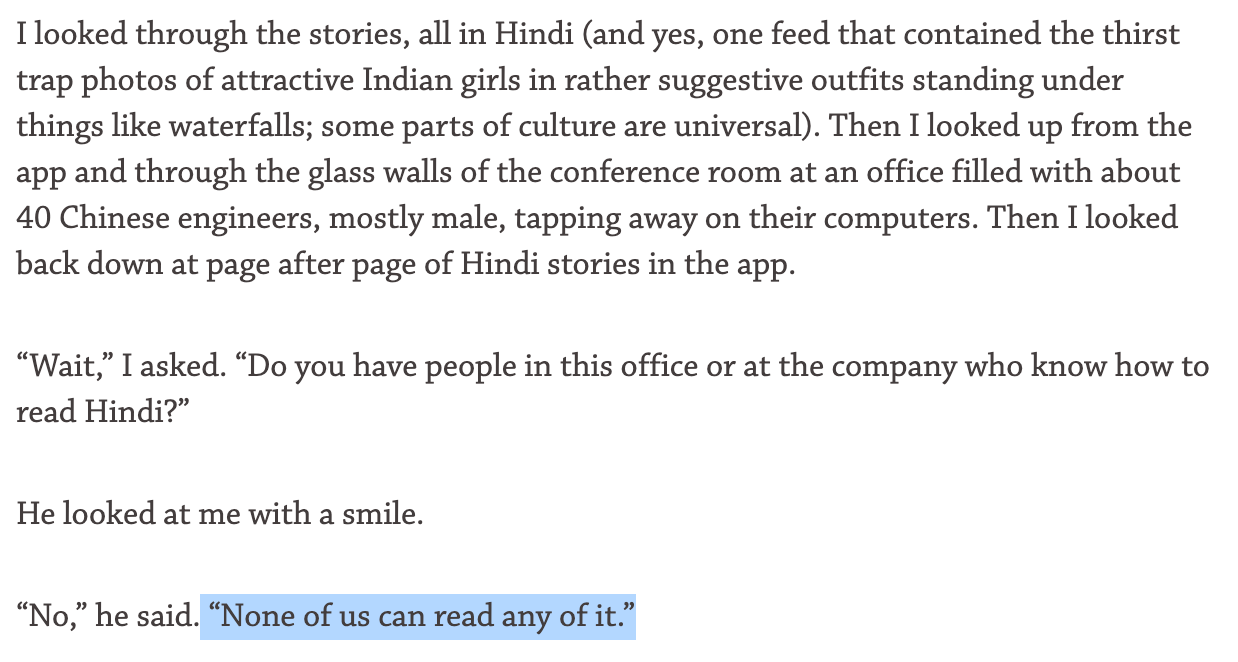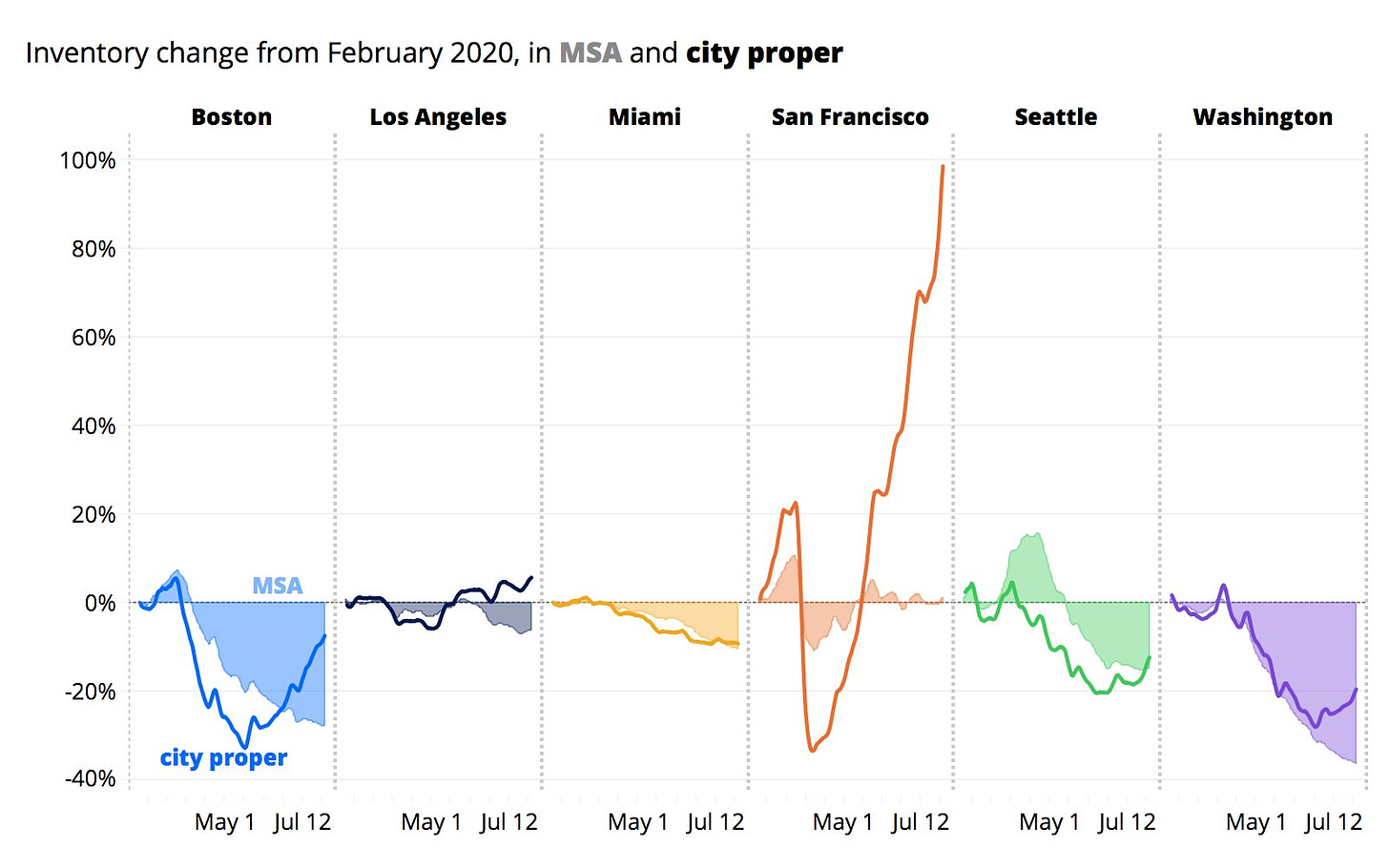💠 Sunday Scaries (08/16/20)
The psychology behind corporate reorganizations, oat milk is not good stuff, TikTok
Hi everyone,
Writing to you from Los Angeles!
I’m considering buying a sailboat. As the saying goes, the two happiest days of a boat owner's life are the day you buy the boat, and the day you sell the boat.
Expect to see lots of content on Twitter about the buying process and what comes next. In the meantime, if you know anyone with experience sailing in Southern California I’d love to meet them.
What’s New This Week
The Open-Source P.h.D. (🔒): This week’s subscriber’s only post included a compilation of free alternatives to a graduate degree program.
Private Workspaces Photo Album: I’ve been gathering behind-the-scenes photos of the workspaces of Steve Jobs, Hans Zimmer, Steve Aoki, and others. I love these photos because they provide a peek behind the curtain that often surrounds highly successful people.


In This Week’s Edition:
[⚙️ Business] Why employees involved in reorganizations often choose to leave after learning how the company actually operates: This Harvard Business Review article provides a fantastic summary of the psychology behind corporate reorganizations. A few takeaways:
Managers involved in the reorganization process often do not return to their former roles, even when offered the opportunity. Instead, a large percentage chose to take on individual contributor roles in the “periphery” of the company.
Even experienced employees often do not have a clear understanding of how their organization makes decisions.
Most processes inside of large companies are not the result of careful engineering, but instead are ad-hoc responses that are not critically examined once put into place.
My favorite quote, from an employee who has seen the light:
“They said ‘Well, you can’t.’ I said, ‘Why can’t we? … We can do anything we want. We made it up. We’ll make it up some more.’”
[🍩 Nutrition] Oat milk is not a healthy alternative: A great post from Nat Eliason on the similarities between oat milk, cigarettes, and soda. Oat milk is loaded with sugars (for taste) and canola oil (for a milk-like consistency).
[📱 Apps] A deep-dive into TikTok from social guru Eugene Wei: If you’re interested in the history of TikTok and how to think about the algorithmic feed, this post is worth reading. I start with Eugene’s theory of social capital as a framework anytime I want to understand why a social media company is making a strategic decision. The reason that TikTok is so interesting is that it is one of the only social networks that determines what content to show you independent of your social graph. The algorithm determines your preferences simply through your interactions within the application, rather than based on who you follow. As Eugene puts is:
TikTok’s algorithm is the Sorting Hat from the Harry Potter universe. Just as that magical hat sorts students at Hogwarts into the Gryffindor, Hufflepuff, Ravenclaw, and Slytherin houses, TikTok’s algorithm sorts its users into dozens and dozens of subcultures.
My favorite paragraph from the essay, highlighting the unique ability of TikTik to bridge cultural barriers:

Photo of the Week

Source: Zillow 2020 Urban-Suburban Market Report
The graph above displays the open inventory (i.e. available houses/apartments) on Zillow, a popular home buying website. There is a large exodus taking place in San Francisco as technology workers leave the area to take advantage of the transition to remote work. I was originally skeptical about the move to remote work for teams, writing about my reservations in a 2019 Sunday Scaries post titled: “Take That Next Meeting In Your Pajamas”:
Look — at face value, I get it. Living in San Francisco is not a prerequisite for knowing how to make great software, and the cost of living is prohibitively expensive for anyone who values a saving rate higher than 0%. On the other hand, companies announcing a shift to a remote workforce and then rolling back the decision is not uncommon. Company culture is hard. It’s even harder when your workforce is geographically separated by thousands of miles and several time zones. Relationships aren’t made over Slack and email, they’re made during the walk to lunch or sitting in a room and making small talk. If you can choose between the comfort of your home, or turning on a Webcam to drop in on a coworker, I would guess that the former is more probable. That’s not to say it will never happen, just that it will happen less than a traditional office environment.
Thanks for reading,
Phil
Sunday Scaries is a newsletter that answers simple questions with surprising answers. The author of this publication is currently living from his car and traveling across the United States. You can subscribe by clicking the link below. 👇



